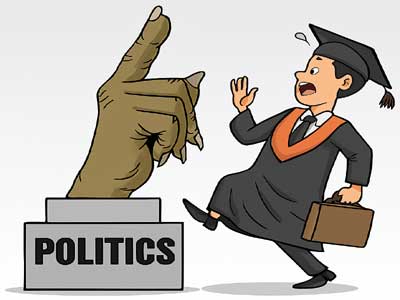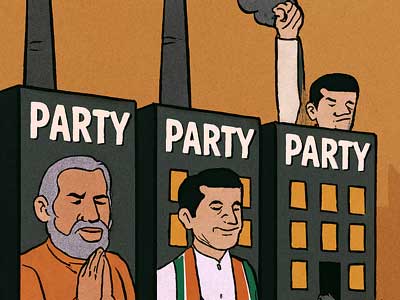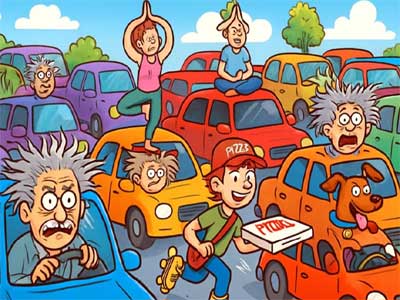Since the rise of Trump, global peace has been under threat. The fear of nuclear war is growing as multiple hotspots—Ukraine, Taiwan, and the Middle East—remain tense. Trade wars are intensifying, and nations are turning against each other economically. The world now resembles a battleground of ‘survival of the fittest’, where the scramble for power and resources has weakened global cooperation. In such a volatile environment, even a small spark could trigger catastrophic consequences.
Is this the time to keep playing at ceasefires? Can the United Nations, with its current structure and power imbalance, confront the 21st century’s mounting global challenges?
As the Russia-Ukraine war enters its third year, Israeli bombings rain down on Gaza, and American airstrikes target Iran, the world is burning—and the UN remains a mute, powerless observer. Has the organisation now been reduced to ceremonial meetings and hollow resolutions?
When the UN was founded in 1945, it was expected to prevent a third world war and lay the foundation for global peace and justice. But today’s reality tells a different story. Gaza is strewn with children's bodies, Ukrainian cities lie in ruins, and bombs fall on Iran—yet the UN only manages a ‘strong condemnation’.
From the Ukraine war to the Israel-Palestine conflict, the UN’s inaction has cast a huge question mark over its relevance. A prominent international political analyst recently remarked, “The UN is now an institution on its deathbed.” Indeed, the organisation continues to fail in meeting the world’s expectations.
The UN Security Council, considered the guardian of global peace, has become crippled by the veto powers of its five permanent members: the USA, Russia, China, France, and the UK. Russia blocked resolutions condemning its invasion of Ukraine; the US repeatedly thwarted attempts to stop Israel’s actions in Gaza.
The old saying “Might is right” perfectly fits the UN’s current functioning. Powerful nations manipulate the institution to serve their interests, while others remain mere spectators.
During the COVID-19 pandemic, the World Health Organisation—a UN body—was accused of going soft on China. Delays in declaring the pandemic and attempts to cover up the virus's origin dealt a blow to the WHO’s credibility. ‘No oil, no dance’—how can one combat a global health crisis without transparency?
Public commentator Prof Paras Nath Chaudhary notes, “China’s major role in the UN Human Rights Council and Pakistan’s presence on the counter-terrorism committee mock the very principles of global justice. A nation infamous for rights violations in Hong Kong and Xinjiang lectures on human rights, and a country accused of fueling terrorism in Kashmir heads an anti-terror platform—this is truly ‘darkness under the lamp.”
The UN’s helplessness is most evident when nations like the USA, Israel, and Russia conduct unilateral military strikes—drone attacks, targeted killings, and bombings—without any UN authorisation. When international law is routinely ignored, it’s natural to question the relevance of the UN.
The world is now multipolar. Countries like India, Brazil, Germany, and Japan have long demanded permanent seats on the Security Council. But existing members refuse to let go of power. As a result, the UN finds itself in a state of ‘neither here nor there’—neither effective nor impartial.
Senior journalist Ajay Jha still sees some hope: “Despite its many failures, the UN cannot be entirely written off. It continues to play a vital role in areas like climate change, disaster relief, and refugee assistance. Bodies like the UNFCCC and UNHCR still offer a glimmer of hope in environmental and humanitarian crises.”
But unless the organisation heeds the lesson—' Those who don't change with time are changed by time’—and curbs toxic powers like the veto, ensures accountability, and builds inclusive representation, it risks being buried in the pages of history, as an institution of missed opportunities.
Today, the UN stands at a critical crossroads. It can either walk the path of institutional reform or fade into a symbolic relic of the past, celebrated on anniversaries, but forgotten in action.


















Related Items
Path to a self-reliant India amid global trade conflicts…
Battle for Bihar: Struggle for power or people’s retribution?
Trump’s Conspiracy: India’s Trap or Golden Opportunity?